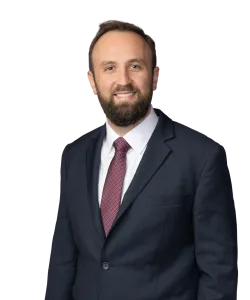Court Lets BDO’s Trade Secrets Lawsuit Against Ankura Move Forward
The plaintiff, BDO USA, P.C. is an accounting and professional services advisory firm. The defendants are Ankura Consulting Group, LLC, Ankura’s CEO Kevin Lavin, and Phuoc Vin Phan.
BDO alleges that Phan, its former Healthcare Transaction Advisory Services (TAS) leader, conspired with Lavin to execute a “lift‑out” of BDO’s Healthcare TAS practice and transfer that practice to Ankura, a direct competitor of BDO. BDO alleges that beginning in mid‑2023, Phan and Lavin conspired to recruit BDO personnel. Lavin communicated offers and assurances (including indemnification) to BDO employees, despite concerns regarding their duties and obligations to BDO. In one instance, BDO alleges that Levin rescinded a job offer to a former BDO employee after “expressing his distress that employment at Ankura may violate his contractual obligations to BDO.”
In late December 2023, Ankura sent Phan a “Good Leaver” checklist guiding his departure. The checklist advised Phan to “use methods of voice communication rather than written communication, and to take notes about conversations with staff at BDO for Ankura to use ‘should we get into litigation.’” Phan submitted his resignation to BDO on January 9, 2024. On January 10, 2024, BDO discovered that Phan had transferred 1,715 files — about 12.5 GB of confidential data — from his BDO laptop to a personal device and had attempted to exfiltrate an additional 1.2 GB. BDO alleges that, of the 11 team members that worked for the TAS practice from January 5-12, 2024, seven of them had resigned. By mid‑February 2024, all seven had joined Ankura’s practice under Phan.
BDO brought claims against Ankura, Phan, and Levin alleging inter alia, violations of the Defend Trade Secrets Act (DTSA), violations of the Virginia Uniform Trade Secrets Act (VUTSA), tortious interference with Phan’s employment agreement, unjust enrichment, breach of contract, and breach of fiduciary duty. The matter was before the court on the defendants’ motion to dismiss.
Case Information
BDO USA P.C. v. Ankura Consulting Group, LLC, 3:24-cv-179 (E.D. Va.).
Plaintiff: BDO USA, P.C.
Defendants: Ankura Consulting Group, LLC; Phuoc Vin Phan; Kevin Lavin
Judge: Henry E. Hudson
Motion to Dismiss and Outcome
The defendants sought dismissal of all counts.
The defendants sought dismissal of the VUTSA claims on the basis that the “Plaintiff failed to allege any conduct took place in Virginia.” In denying the defendants’ motion to dismiss on this basis, the court emphasized both parties’ extensive connections to the Commonwealth. Specifically, the court took note of the “various features of this case” that “have a strong nexus to Virginia,” including “a provision in the employment agreement between Plaintiff and Defendant Phan consenting to jurisdiction in Virginia.” The court also noted the plaintiff’s allegations that Ankura is “perpetually registered to do business in Virginia, owns a Virginia-based subsidiary, employs Virginia residents, and has Virginia based clients.” The court concluded that at this stage, it was unable to conclude that no trade secrets had been misappropriated in Virginia and thus, denied the defendants’ motion to dismiss the VUTSA claim.
The defendants also argued that the VUTSA preempts all of the plaintiff’s claims except for the DTSA claim. The court, however, emphasized that the VUTSA “does not provide ‘blanket preemption to all claims that arise from a factual circumstance possibly involving a trade secret.’” Thus, because the other claims are not entirely predicated on the trade secrets misappropriation, the court concluded that the VUTSA preemption does not apply.
Additionally, the defendants argued that the breach of contract claims must be dismissed since the contract at issue does not contain a non-solicitation provision. The court pointed out, however, that the defendants had previously referred to certain portions of the employment agreement as a non-solicitation provision. Thus, the court concluded dismissal at this stage would be inappropriate since the terms of the agreement are not “clear and unambiguous.”
The court declined to dismiss the tortious interference claims, concluding that “‘the contract at issue was not terminable at will and, thus, Plaintiff is not required to allege improper methods were used’ to meet the elements of tortious interference with contract.”
Regarding unjust enrichment, the court acknowledged that “a plaintiff cannot simultaneously succeed on theories of unjust enrichment and breach of contract,” however, the court held that the “Plaintiff has alleged numerous benefits conferred to Defendants,” including “access to proprietary information, confidential information, and trade secrets.” Thus, the court concluded that the plaintiff had sufficiently pleaded a claim of unjust enrichment.
Lastly, as to the statutory and common law conspiracy claims, BDO alleges that “‘Phan hatched a plan to leave BDO and take the Healthcare TAS practice—its employees, clients, and its confidential information and trade secrets lock stock and barrel,’ actions in which ‘Ankura and Lavin were willing partners.’” The defendants argued that Phan, as a party to his own employment agreement with BDO, could not serve as a party necessary to plead an allegation of conspiracy based on the alleged tortious interference. The court noted that Virginia common law “recognizes a cause of action against those who conspire to induce a breach of a contract, even when one of the alleged conspirators is a party to the contract.” Thus, the court declined to dismiss the conspiracy claims.
Contacts
- Related Practices







